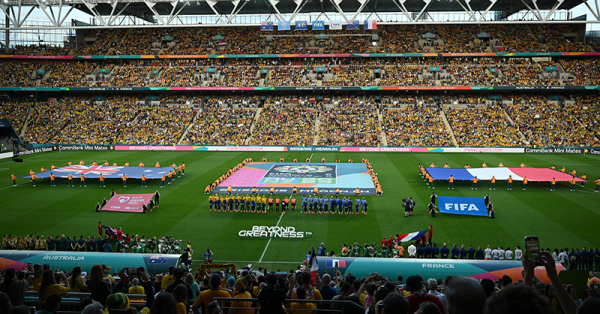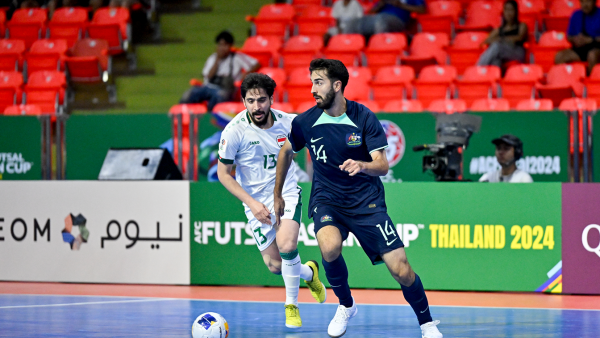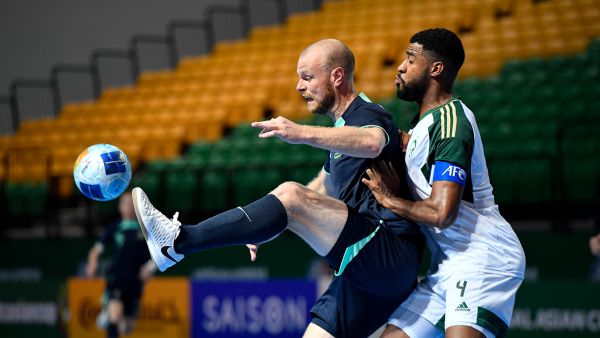Refugee Week 2020: Football a familiar language for Musie Elongo
Musimbwa Elongo found his way home to Australia from the war-torn Democratic Republic of the Congo in 2005, despite the struggles of adjusting to a new country, football became a beacon of hope.
Musie Elongo was only a small child when war broke out in the Congo in the early 1990s. From there his family escaped to a refugee camp in Tanzania, where they lived for the next nine to ten years.
Despite the time they spent in the refugee camp Elongo considers his family one of the lucky ones.
“I was one of the lucky few that got to come to Australia to start a better life,” he said.

While tensions in the camp were high and a wave of distress hovered closely over each of its residents, football found its first purpose for Elongo and his family.
Elongo found one of their first tastes of normalcy came from playing football on the path outside of their home in the camp.
Sport was a way of escaping the trauma and experience we went through in Congo. Football was a way to express ourselves and forget all we went through.”
Elongo was twelve when he sat down with his mother four brothers and two sisters as his father told them they were finally moving to Australia.
“The moment we found out we were playing on the street and my dad called us in and said in about six to eight months’ time we would be preparing to leave for Australia,” he said.
“We were all praying and screaming it was just the biggest excitement.”
Elongo arrived in Australia at the age of thirteen in 2005. Despite the initial cultural shock with his very first steps in Australia he felt at home.
“I came from an environment where we didn’t have electricity, we didn’t have TVs,” he said.
“My first impression was just wow; it was just a new experience.”
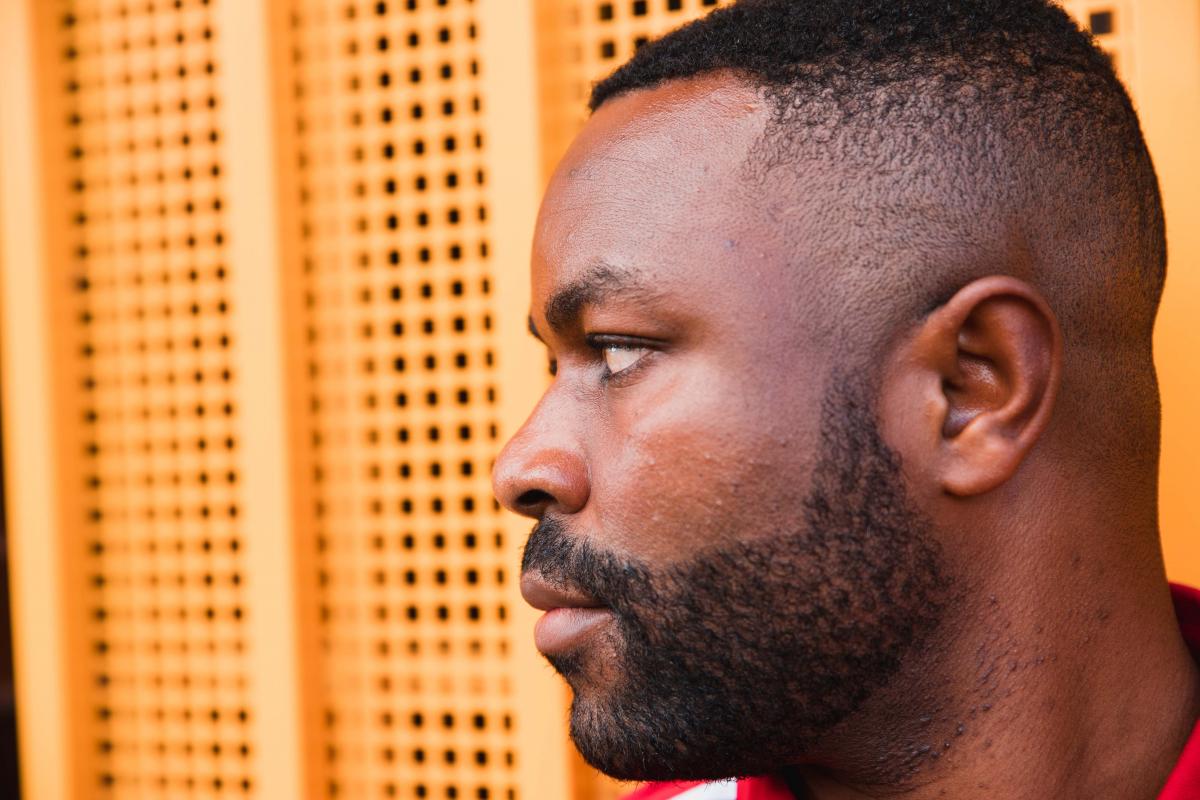
The number of people escaping war is in excess of 63.5 million worldwide but no figures and no statistics capture the challenges of resettlement, exclusion and cultural difference for those who get to make their way to their new home.
Elongo found himself struggling with two main challenges while adapting to life in Australia.
“The biggest struggle for me was the language barrier,” he said.
“The second was adjusting to the weather in Australia because coming from Congo and Tanzania were its summer nine months out of the year, it was a big change.”
Football found its second purpose for Elongo in Australia, it was a comforting and familiar language in an environment where everything was new and unclear.
“Football was a big object in helping me adjust to Australian way of life,” he said.
With football it was easy for me to make friends even though I didn’t speak English because we found we already had something in common,”
“It helped me build friendships and confidence.”
MORE: Finding comfort in Australian Football – the story of two Iraqi cousins
MORE: Celebrating contributions to Australian football
MORE: Thomas Deng's journey from South Sudan refugee to Socceroos
Football at its most fundamental level became a foundation for hope and peace, breaking through the toughest barriers society constructs between people and cultures.
For Elongo football has provided him with more than just skills and technique. Instead it gave him life lessons that he has adapted to all parts of his life.
“Football has taught me a lot of lessons,” he said. “It’s taught me to be patient and taught me to be creative,”
“It helped me to communicate with other people because we play on teams where you have four or five different nationalities and you get to learn about their beliefs, their way of life,”
“That helped me grow as an individual.”
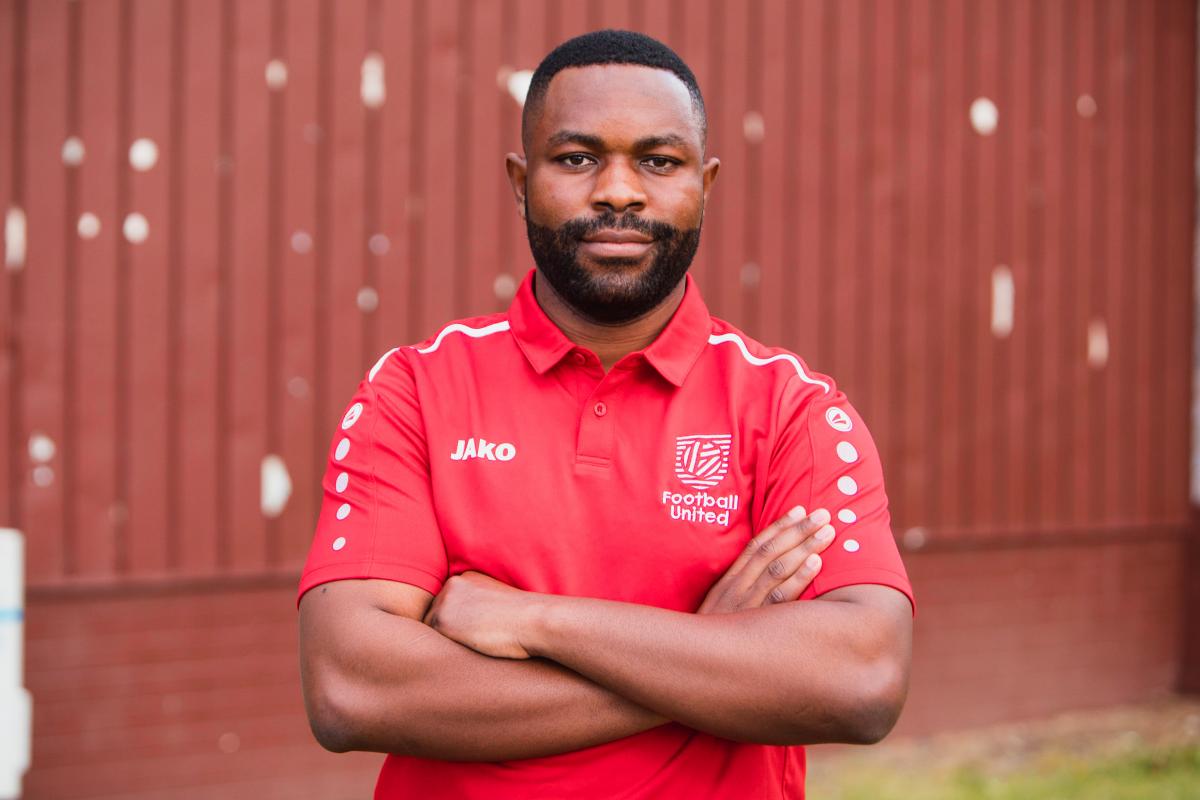
Now almost 15 years later Elongo coaches football at the National Premier League level and leads the North Shore Mariners U14 boys. He uses his experiences to help mentor upcoming players going through similar circumstances.
“My experience has helped me in dealing with players who are coming from a refugee background and come into the NPL system,” he said.
“Where their football experiences are just being on the street where they haven’t learned how to play structured football,”
“It helps me relate to those types of players.”
Football, aptly considered the world game, is unique in its power to be a true equaliser. Despite coming from different backgrounds football has always granted people the ability to speak to each other even when they don’t speak the same language.
For Elongo, football has the ability to help give players a moment of peace.
“When you step out onto the pitch you get to forget everything,” he said.
For the young refugee and migrant children still trying to adjust to making Australia their home, Elongo has one key piece of advice.
“Don’t think too far ahead, enjoy every moment and push on.”


